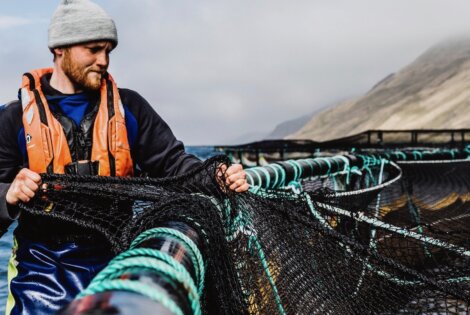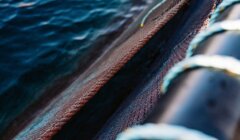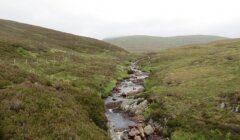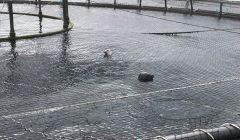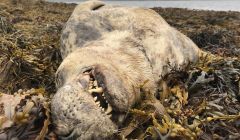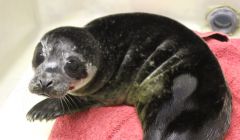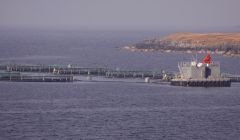Marine / Seals deterrent investment paying off, salmon producer says
Scottish Sea Farms says two seals were shot in Shetland during the first half of 2019
SCOTTISH Sea Farms says it is confident that ‘last resort’ seal shooting will be eradicated after the multi-national salmon producer revealed that two seals were shot during the first half of 2019, both in Shetland.
The company, one of the three major players in the isles, is investing more than £5.7 million in rigid new pen netting – Seal Pro and Seal Pro Excel netting – to deter seals from attacking salmon in the cages.
Other companies in Shetland and across the Scottish industry are doing likewise in an attempt to bring the number of seal shootings to zero before a US import ban on salmon from farms that kills sea mammals kicks in on 1 January 2022.
Scottish Sea Farms is also trialling a new electric fish device, a deterrent pioneered by Dundee-based innovators Ace Aquatec, that swims around the base of the net and emits a light-touch electrical current when bitten down on by predators.
The company, which operates 43 salmon farms along the Scottish coast of which eight are in Shetland, said the ongoing investment has already led to a “significant reduction” in ‘last resort’ seal shooting.
Last year licensed Scottish Sea Farms marksmen shot seven seals over the same six month period, and eight in the first six months of 2017.
Managing director Jim Gallagher said: “We won’t be happy until we achieve zero seal deaths, however our multi-million pound investment to roll out protective Seal Pro netting across as many of our farms as possible, as quickly as possible, is another example of our commitment to farm as responsibly and as sustainably as we can.”
The company said the first shooting this year took place in March when a seal climbed over the top into a pen that was already equipped with the new seal deterrent netting.
Become a member of Shetland News
The following month, a seal was shot on a different Shetland farm that had not yet been fitted with the new netting, although it will in 2020.
Gallagher said that three of the company’s eight Shetland farms were currently equipped with Sea Pro netting, with the aim to have all fitted by or in 2020 the latest.
Scottish Sea Farms’ head of fish health Dr Ralph Bickerdike added: “Seals naturally feed on a variety of wild fish and other marine life and are thought to consume up to seven kilos a day, depending on species.
“In the hunt for food, seals are occasionally relocating from farms that have Seal Pro nets to nearby farms that have previously had no significant seal challenge, hence our drive to protect all farms. We’ve also seen seals climb up and into pens.
“Both types of event happened earlier this year, accounting for the two shootings which were carried out under licence.”
Become a member of Shetland News
Shetland News is asking its readers to consider paying for membership to get additional perks:
- Removal of third-party ads;
- Bookmark posts to read later;
- Exclusive curated weekly newsletter;
- Hide membership messages;
- Comments open for discussion.
If you appreciate what we do and feel strongly about impartial local journalism, then please become a member of Shetland News by either making a single payment, or setting up a monthly, quarterly or yearly subscription.






